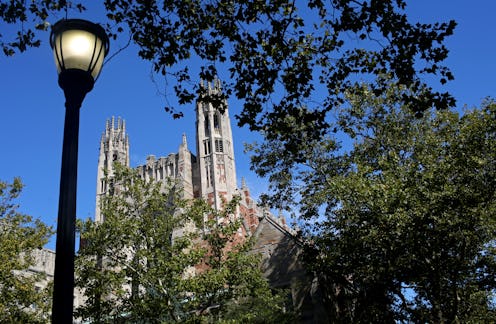Life
Should You Apply Early to College?

‘Tis the season for visiting liberal arts schools and universities, filling out college applications, and writing personal statements, and while most regular decision applications aren't due until January, you should probably be aware of early action and early decision deadlines, you overachiever, you.
What are early decision and early action? They're basically opportunities to apply to college or colleges that you like before most people do. Both generally require that you send in an application well before regular admissions, usually in November. One involves a lot more commitment than the other, though, and both have their downsides, so it's important to know what you're getting into.
Also, these programs are unique to the United States — so if you’re thinking of going abroad, you probably won’t have to face these decisions. So, which option is right for you? Let's break it down.
Early Decision
What it is: Early decision is a binding agreement with the school at which you're applying. If your application is accepted, you must attend this school and withdraw applications to other colleges.
Pros: If you’re absolutely sure about your top school choice and are a competitive candidate for that school, early decision is probably a good option. A lot of prestigious schools consider your early decision application as a loyal commitment to their school, and a sign of your dedication. Early decision will ensure that you’re in front of admissions counselors early, and that you're competing against a smaller pool of applicants. It will also guarantee that if you don't make it through this round, you'll have a second chance with regular decision applicants.
Cons: Binding contracts are just that: binding. If you apply to other schools while submitting an early decision application, The College Board notes that you'll be expected to withdraw every application you sent out if you get accepted to your early decision college. Because you've withdrawn your applications to other schools, you can't negotiate financial aid as well as you might if you had other schools vying for your attendance (although it might be possible to escape the agreement if you can prove your financial aid package isn't big enough). With few exceptions, you have to accept.
Also: Don't even think about tricking colleges with multiple early decision applications. One admissions director at Harvard told the New York Times that schools sometimes send around early decision applicant lists, and alumni and classmates will often give you away if you're trying to fool the system. If schools deem you untrustworthy, it's likely they'll withdraw your application.
Tips: If you apply early decision and get deferred into the regular decision pool, there's still a chance you'll get in, so long as you keep up your extracurricular activities and send in extra materials to your school of choice. No slacking off second semester senior year: you have to show your first choice college how much harder you’ve worked on your application since applying the first time.
Early Action
What it is: Early action is a non-binding agreement with the school. You are essentially sending your application in early so that you can get a response faster and plan accordingly.
Pros: If you're kind of a commitment-phobe and binding contracts sound scary, early action might be a better option than early decision. Once you submit, you only have to wait until around December to hear back from your chosen school(s). With this submission process, the College Board states that you can apply to multiple schools and not feel pressured to make a choice right away, as long as it's not restrictive early action. Restrictive early action means you can only apply to one school early — and still decline or wait until May to answer — but you miss out on applying early to other programs.
Cons: You might really want to be accepted to this school through an early action decision, but so do thousands of other applicants. Because early action isn't restrictive, that means many more competitive students will choose this option to submit. Also, if you wait until December to hear back about your early action schools and fail to send out other applications, you might have to scramble to meet the regular deadline for college applications should you not be accepted to any of your early action schools.
One advantage of both submissions processes is that if you find out that you're accepted to a program by December (instead of May), you'll have much more time to plan out your transition into college, which can make things much less stressful in the long run.
With any school, make sure that you’ve done your research, and that you don't misunderstand the options presented. If in doubt, most schools have helpful admissions offices that can get you on the right track if you email or phone for help.
Images: Getty Images; Giphy (2);